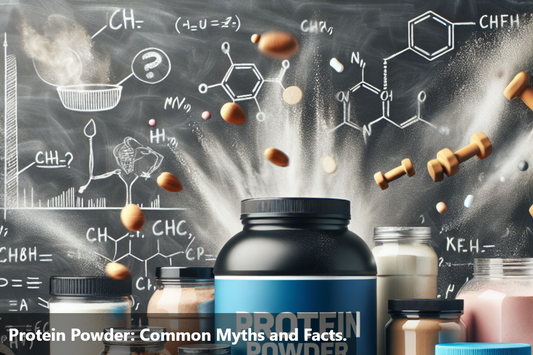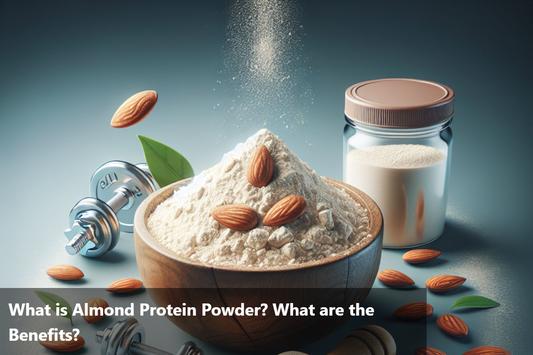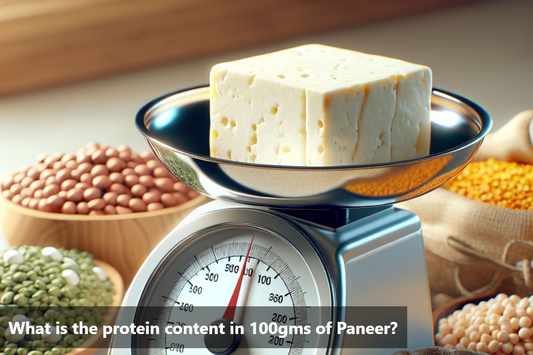Whey protein is a high-quality protein derived from cow's milk during the cheese-making process. It is a complete protein containing all essential amino acids necessary for muscle growth and repair. The manufacturing process involves separating the liquid whey from the curds, followed by filtering and drying to create a powder.
There are three main types of whey protein: concentrate, isolate, and hydrolysate.
Consuming whey protein offers numerous benefits such as promoting muscle growth, aiding weight loss by increasing feelings of fullness, and supporting overall health. It can be easily added to shakes, smoothies, or recipes to boost protein intake conveniently.
Types of Whey Protein
Whey protein comes in various forms, each offering specific benefits. The three primary types are whey protein concentrate, whey protein isolate, and whey protein hydrolysate.
Whey Protein Concentrate:Whey protein concentrate (WPC) is one of the forms of whey protein derived from milk during the cheese-making process. It undergoes minimal processing, typically involving filtration and drying, to remove most of the non-protein components such as water, lactose, and minerals, while retaining the protein content. This type contains a lower percentage of protein compared to isolate and hydrolysate. It retains more fats and carbohydrates, along with beneficial nutrients found in whey.
Whey Protein Isolate: Whey protein isolate undergoes further processing to remove more fats and lactose. Whey protein isolate (WPI) is a highly refined form of whey protein that undergoes additional processing compared to whey protein concentrate (WPC). It is derived from whey, a byproduct of cheese production. During the manufacturing process, whey protein isolate is filtered to remove most of the non-protein components, including lactose, fats, and carbohydrates, leaving behind a product that is almost pure protein. It is higher in protein content, making it a popular choice for those aiming to increase protein intake without additional calories.
Whey Protein Hydrolysate: Whey protein hydrolysate, also known as hydrolyzed whey protein, is a form of whey protein that has undergone additional processing called hydrolysis. During hydrolysis, the protein molecules are broken down into smaller peptides and amino acids through enzymatic or chemical means. This process results in a protein powder with pre-digested proteins, which are easier and faster to absorb by the body compared to intact proteins found in whey protein concentrate (WPC) or whey protein isolate (WPI).
Each type of whey protein offers unique advantages based on individual needs and fitness goals. Understanding these differences can help you make an informed decision when choosing the right supplement for you. Prioritize taste, protein content, and digestibility to select the most suitable option for your diet and fitness regimen.
Benefits of Whey Protein
Muscle Growth and Repair: Whey protein is rich in essential amino acids, particularly leucine, which plays a crucial role in stimulating muscle protein synthesis. Consuming whey protein after resistance exercise can help promote muscle growth and repair.
Weight Management: High-protein diets, including those containing whey protein, have been shown to promote feelings of fullness and satiety, which can aid in appetite control and weight management. Additionally, the thermic effect of protein metabolism may contribute to increased calorie burning.
Improved Physical Performance: Whey protein supplementation may enhance physical performance, particularly during resistance training and endurance exercise. It can help increase strength, power, and endurance, leading to improved athletic performance.
Bone Health: Whey protein contains bioactive peptides that may have beneficial effects on bone health by stimulating osteoblast activity and increasing calcium absorption. Regular consumption of whey protein may help support bone density and reduce the risk of osteoporosis.
Immune Function: Whey protein contains immunoglobulins and lactoferrin, which have immune-modulating properties. These compounds may help support immune function and protect against infections and illnesses.
Blood Sugar Control: Whey protein may help improve blood sugar control by stimulating insulin secretion and enhancing insulin sensitivity. It can help regulate blood glucose levels, particularly when consumed as part of a balanced meal.
Heart Health: Some studies suggest that whey protein may have beneficial effects on heart health by reducing risk factors such as high blood pressure, inflammation, and elevated cholesterol levels. These effects may help lower the risk of cardiovascular disease.
Antioxidant Properties: Whey protein contains antioxidants such as glutathione, which help protect cells from oxidative damage and reduce inflammation. Regular consumption of whey protein may contribute to overall antioxidant status and support overall health.
Gut Health: Whey protein contains bioactive peptides that may have prebiotic effects, promoting the growth of beneficial gut bacteria. This can help support digestive health and improve nutrient absorption.
-
Stress Reduction: Whey protein contains components like alpha-lactalbumin, which is rich in the amino acid tryptophan. Tryptophan is a precursor to serotonin, a neurotransmitter involved in mood regulation. Consuming whey protein may help reduce stress and improve mood.
Whey Protein Myths Debunked
Myth
Whey protein is only for bodybuilders: While whey protein is popular among bodybuilders and athletes for muscle building and recovery, it is beneficial for individuals of all fitness levels and lifestyles. It can support various health goals, including weight management, muscle maintenance, and overall nutrition.Myth
Whey protein will make you bulky: Building significant muscle mass requires a combination of resistance training, adequate calorie intake, and consistent effort over time. Whey protein alone will not cause bulkiness. Instead, it supports muscle recovery and growth when combined with appropriate exercise and nutrition.Myth
Whey protein is only for men: Whey protein is suitable for both men and women. Protein requirements depend on factors such as age, weight, activity level, and fitness goals. Women can benefit from whey protein supplementation for muscle recovery, weight management, and overall health.Myth
Whey protein is harmful to the kidneys: There is no evidence to suggest that moderate whey protein consumption is harmful to healthy kidneys. In fact, whey protein may even have beneficial effects on kidney health by supporting muscle preservation and overall nutrition. Individuals with pre-existing kidney conditions should consult a healthcare professional before supplementing with whey protein.Myth
Whey protein causes acne: There is limited scientific evidence linking whey protein consumption to acne. Acne development is influenced by various factors, including genetics, hormones, and skincare habits. If you suspect that whey protein is exacerbating your acne, consider other potential triggers and consult a dermatologist for personalized advice.Myth
All whey protein supplements are the same: Whey protein supplements vary in terms of quality, purity, and ingredients. Factors such as protein concentration, processing methods, added ingredients, and brand reputation can influence the effectiveness and safety of whey protein products. Choose reputable brands with transparent labeling and quality assurance practices.
Bottomline
Whey protein is renowned for promoting muscle growth and recovery due to its high amino acid profile, particularly leucine. For those looking to shed some extra pounds, whey protein can aid in weight loss by increasing satiety and supporting fat loss while preserving lean muscle mass.Whey protein has been associated with various health benefits like improved immune function and reduced inflammation.
Whey protein is a versatile supplement with valuable benefits for individuals seeking to enhance their fitness journey and overall well-being. Whether you are aiming to build muscle, lose weight, or simply improve your health, incorporating whey protein into your diet can be a beneficial choice. Make sure to choose the right type based on your goals and enjoy the advantages it provides.
This Blog post is an initiative by DiabeSmart, to provide accurate and Nutritionist / Doctor approved information related to Diabetes. DiabeSmart is India's first Food brand designed specifically for Diabetics, that has been clinically tested on Diabetics and Pre-Diabetics to deliver 55% - 70% lower Sugar spikes. DiabeSmart is part of Lo! Foods - India's leading brand for Everyday Functional Health foods.











